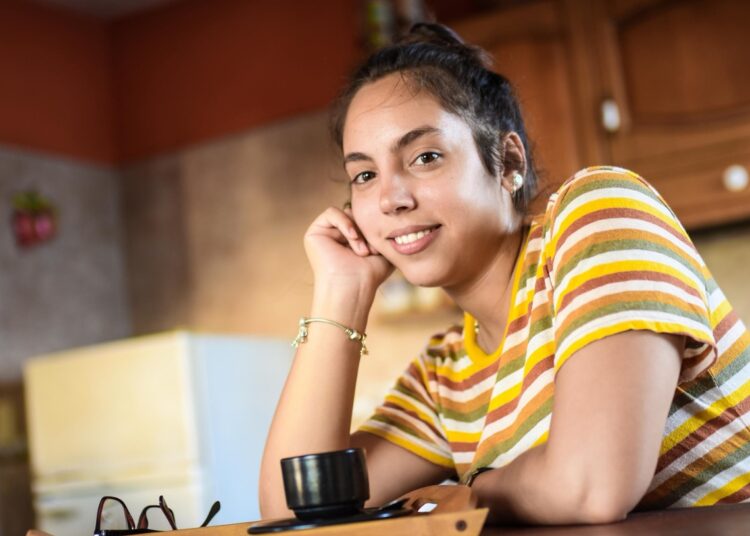Like many entrepreneurs, Daniela Leyva shaped a project during the pandemic. Cocina Menda emerged during one of the many moments of creative leisure that confinement fostered among those who had the privilege of staying home. This Instagram profile, a virtual recipe book where she shares dishes from her kitchen in Havana, already has more than 50,000 followers.
A hydraulic engineer by training, Daniela discovered her inclination toward gastronomy almost by chance: in her fourth year of university, she enrolled in a bartending course. It was at the bar that she began her professional transition into the culinary world, a passion that had been a part of her life since childhood.
“When I was about 10 years old, I watched my grandmothers, both rural women, prepare traditional food for the whole family. I loved helping them and, little by little, I was drawn to the culinary world. My mom bought me baking books, and I tried to recreate those recipes at home. That’s how it all began,” she recalls.
She had just finished her cocktail-making course and started her community service when the quarantine hit. “I was teaching calculus at CUJAE (José Antonio Echeverría Polytechnic University). When they sent us home, I started spending my time testing recipes. My husband and I cooked and made cocktails. We even had a WhatsApp group with my sister-in-law, where I shared everything I made,” she says.
“That’s when my husband suggested I create online content. Together, we opened the Cocina Menda profiles on Instagram, TikTok, Facebook, and YouTube, as well as a blog where I transcribe my recipes. We had everything ready, but I still didn’t dare to post them. Until one afternoon, my sister-in-law offered to help me record the recipe for stuffed tostones (fried green plantain). It was the first recipe I recorded, although I didn’t post it. At first, it seemed like a terrifying process, but little by little, I got the hang of it and managed to build my own space in the kitchen,” she recalls.
Among the more than 300 recipes Daniela has shared on her profile, some Cuban cuisine classics have resonated especially with her community of followers. Congrí (a type of rice), creme de vie, mango jam and other delicacies from Cuban cuisine — currently in crisis due to food shortages that, in turn, are also leading to the loss of a part of our identity — are reproduced over and over again on the screens of Cubans on the island and in the diaspora. Many keep them in a virtual folder so they don’t lose them; others jump straight into the kitchen to get to work.
Behind the final product is Daniela, five years later, determined to move forward with a venture to which she has set great aspirations, while navigating the crisis felt on agricultural platforms, market shelves, and a digital ecosystem that continues to hinder Cuban content creators.
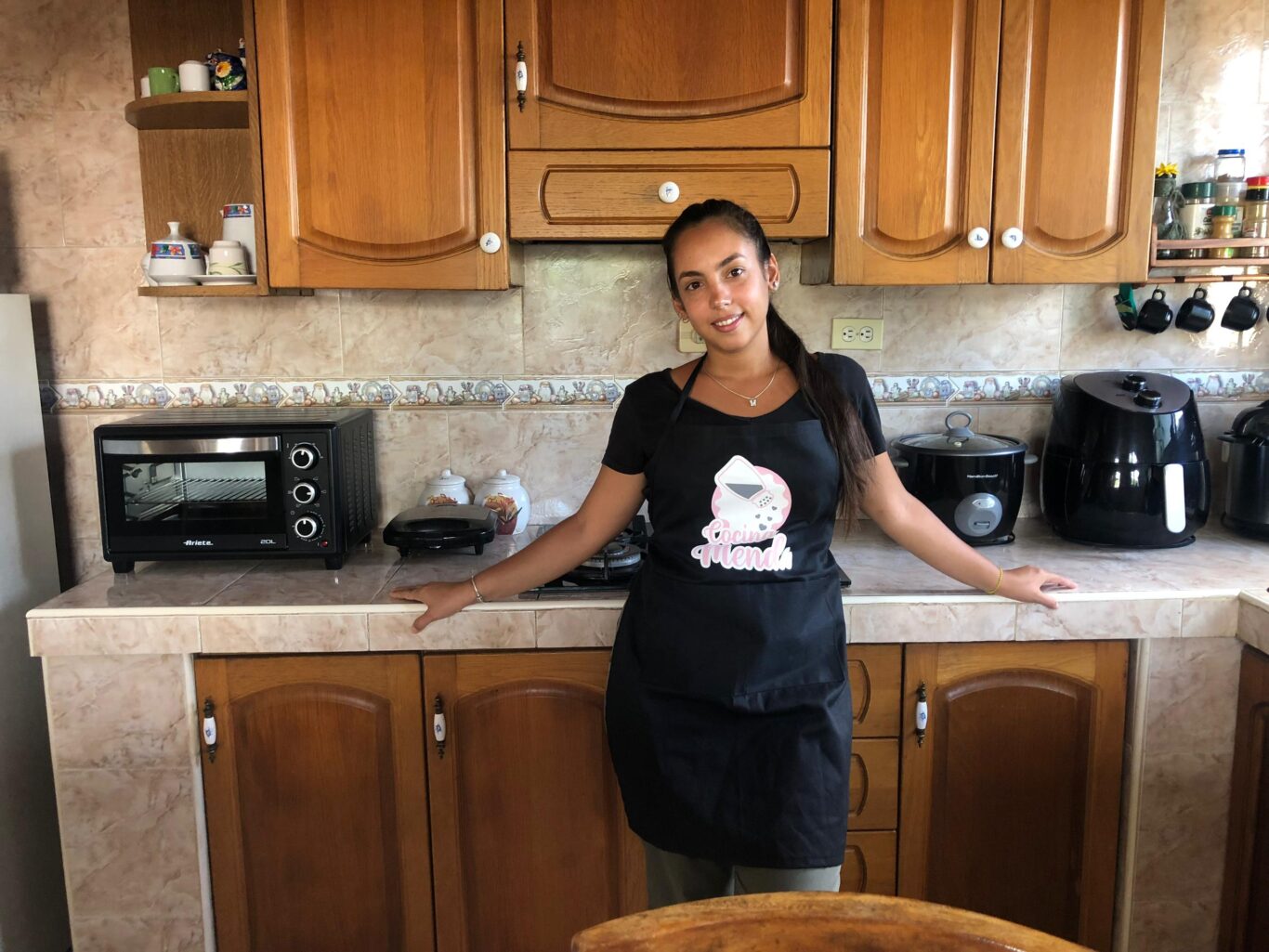
How do you see the evolution of Cuban cuisine on and off the island?
Cuban cuisine has always been that, very traditional and based on pots and pans. Over time, thanks to the internet and people who have been able to travel and then return, our cuisine has fused with many other influences. The traditional foundation of our grandparents remains, but today it has evolved a lot, both in techniques and flavor combinations. I think Cuban cuisine has changed a lot both on the island and abroad. Many Cubans, especially those abroad, miss the traditional, but they also value these new combinations that take our cuisine to another level.
What would you say is the essence of Cuban cuisine?
The essence lies in the love you put into it. Cubans have an incredible ability to work magic with few ingredients and make a meal delicious.
Is there a dish or ingredient that you consider the “soul” of your kitchen?
Salt and pepper. If you don’t have salt and pepper, the food simply doesn’t turn out well.
How do you choose the recipes you share on your social media? Have you created any from scratch?
Generally, I choose recipes based on what I have at home, what I can easily get hold of, or what I find when I do my day-to-day shopping. I try to put together something with what I have on hand and think, “This could be good.” Sometimes I’m inspired by recipes I see from other content creators, especially international ones, and I say, “Look, I can adapt this to what we have here in Cuba,” and I merge it with Cuban cuisine to post it.
I always try to keep the recipes accessible, with ingredients that anyone can get, that aren’t expensive or difficult to find. If I’m missing something, I look for a way to substitute it with whatever I have.
When I go shopping, sometimes I come across something interesting and think, “I can use this for a recipe.” Then, I get organized, jot down ideas in a notebook, and plan based on what I have. Sometimes I can’t make a recipe right away, and I save it for later, when I get all the ingredients.
I don’t follow a rigid plan like “I’m going to publish 20 recipes this month.” Things often change, some ingredients don’t appear, and I have to improvise with what’s available. But yes, I also have some recipes that I created entirely by myself, which came from trying combinations and turned out so well that I wrote them down to repeat, record, and share with my followers.
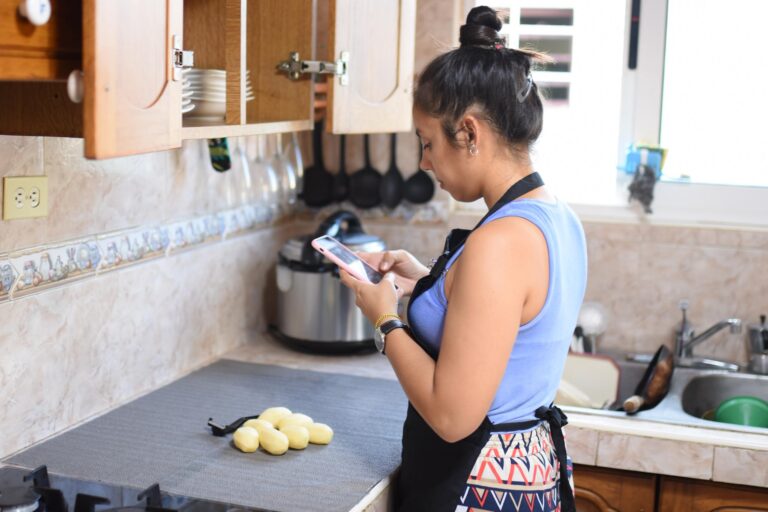
Do you have a special ritual or routine when cooking or recording content?
I don’t know if it can be called a ritual, but I do have a kind of routine. I generally record during the day to take advantage of natural light, because I don’t have a studio or professional lighting. I have some basic conditions, but not all the equipment is ideal for recording at night, so I try to organize myself to work with sunlight.
My kitchen is small, so before recording, I have to move things around. I set up my set, set up the tripod, prepare the space, and record. I also take the opportunity to take the necessary photos. Then I put away everything, put the appliances back in their places, and get on with the day’s tasks: I prepare lunch for myself and my husband, clean, do the dishes, and so on.
Creating content is just one part of what I do. I also do housework and have other responsibilities. But when it comes to the creative process, it’s just me: I cook, record, edit, take the photos, compose… everything.
Why “Cocina Menda”?
I remember when I was a little girl, about 5 or 6 years old, coming home from school, I would ask my maternal grandmother, “Who cooked today, you or mom?” And she would always reply, “Menda,” referring to herself. That way of speaking has stuck with me ever since.
Over time, when people at home asked who cooked, I would jokingly reply, “Menda, who else?” It became a kind of catchphrase among family and friends, and everyone knew that “Menda” was me.
So when it came time to come up with a name for the channel, my husband told me: “Honey, no ‘Cocina Dani’ or anything like that. You are Menda. Everyone knows you as that. You’re the one who cooks.” And so “Cocina Menda” was born: a tribute to my grandmother, may she rest in peace, and to an expression that has been with me since childhood. It’s like saying: “I’m the one who cooks.”
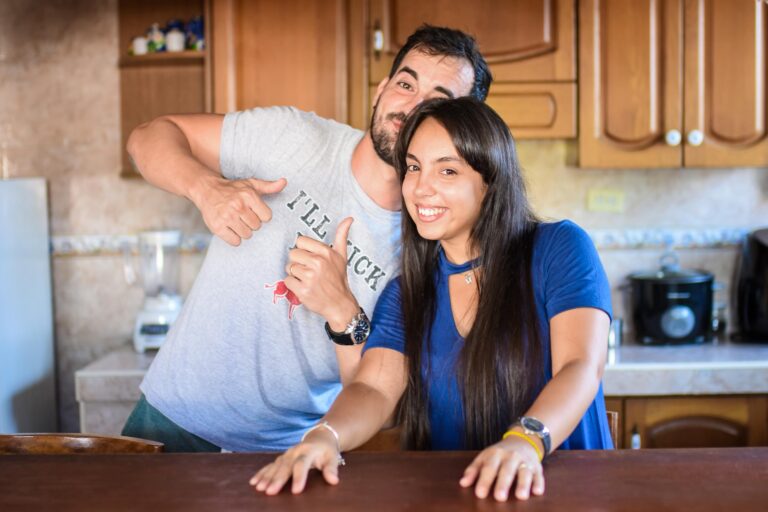
What is the most difficult thing about starting a venture in Cuba today, based on your experience?
Starting, taking the first step. I think we grow up with a huge fear of failure, of what people will say, of the judgment of others. And that fear paralyzes.
That’s why many people have a hard time starting up a project, starting up a business. There are doubts, insecurities, and questions. But once you decide and start, the rest will come together as you go.
If you have a clear idea, if you’re passionate about what you do, the most important thing is to start. That’s the hardest step. But once you start, there’s no turning back. You keep going and find solutions along the way.
What barriers does someone who wants to start a gastronomic business face on the island today?
I would say the main barrier to starting a gastronomic business in Cuba today is the shortage of ingredients and excessive prices. These are the biggest difficulties, both for those who create content and for those who own a gastronomic business.
Sometimes you have a clear idea, you want to plan a recipe or a menu, and when you go out looking for the products… they simply aren’t there. Or if you do find them, the prices are so high that they’re out of your budget.
This can happen to a food content creator as well as to someone who makes desserts to order, for example. Today, you might not find eggs, or you find them and they’re very expensive, and that forces the price of the final product to go up. So yes, for me, those are the main limitations: the lack of products and the high costs.
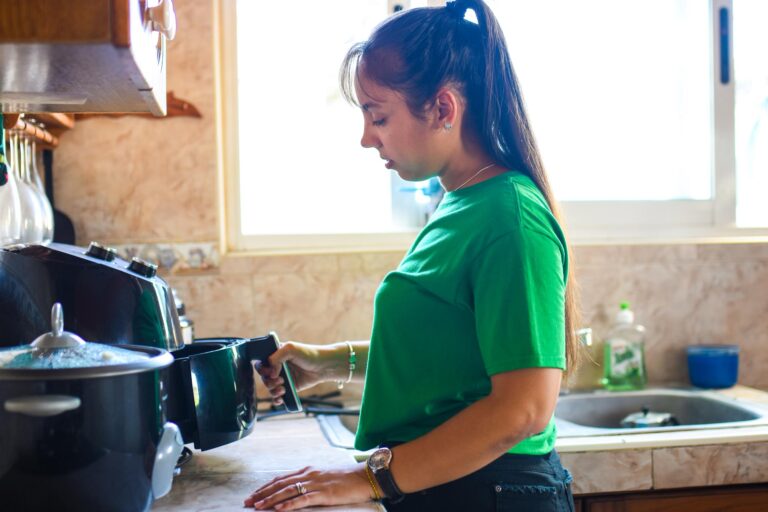
How does a food entrepreneur reinvent herself in a context where even the most basic things are sometimes missing?
Reinventing oneself in the kitchen is the daily routine of any food entrepreneur in Cuba. Often, you have an idea in mind, and when you go to prepare it, you find that you’re missing an ingredient. For example, I always try to substitute it with something similar so I don’t stop making the recipe, but there are times when I simply don’t have the solution, and then I have to change plans, make another recipe, or look for an alternative.
This constant adaptation is part of our job. Scarcity limits you, yes, but it also forces you to be more creative. You end up trying new combinations, creating different flavors…. Sometimes it doesn’t turn out the way you expected, but other times you discover something better than the original idea.
So, although it can be frustrating, very good things also come out of this need to constantly reinvent oneself.
What conditions should change in Cuba to make gastronomic entrepreneurship more viable?
I think the main thing is to have a greater variety of products and more affordable prices. That’s key.
Nowadays, in many stores here in Havana, you find practically the same thing: oil, hot dogs, minced meat, eggs, chicken… and sometimes cookies. But if there were more diversity — as happens in other countries, where there’s access to a wide range of ingredients — we could make many more recipes, try new things, and experiment.
In addition, prices should be more competitive. As anywhere, there may be products that are more expensive or cheaper, but at least there should be the option, allowing one to afford certain ingredients, even if only occasionally. That would help enormously to expand culinary culture and encourage more people to start their own ventures in this sector.
In Cuba, creating content faces many of the same limitations as any other business: the embargo, for example, prevents access to sponsorships from major brands or monetization through platforms like Google AdSense. In that context, how do you make Cocina Menda profitable?
It’s truly very difficult. Here in Cuba, we face many limitations in generating income through social media, especially because we can’t directly participate in affiliate programs from major platforms like Amazon, Walmart, Prozis, or Temu. It’s not that there aren’t any creators who do this, but they do it through third parties or shipping agencies, which actually violates the policies because we don’t have addresses or phone numbers outside the country.
Furthermore, I know creators who have lost promotions or collaborations simply for mentioning their Cuban nationality, which puts the integrity of those of us who just want to get ahead with a digital business model at risk.
Faced with these difficulties, I try to keep the project sustainable by allying and collaborating with local brands, products, and services that, although they sometimes pay in kind or with minimal compensation, value the content and work we do. We know that we often don’t receive the recognition we deserve in the advertising world, even though we help those businesses generate sales.
But, as it is, we must keep working hard. We’re here today, but tomorrow we don’t know where we might be, and that’s why it’s essential to maintain perseverance and passion for what we do.
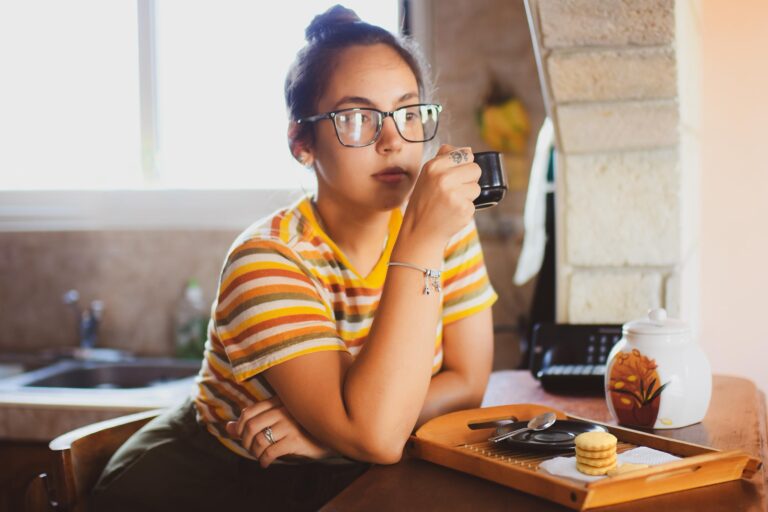
What has been the most beautiful — and the most difficult — part of building a community around Cuban cuisine?
The most beautiful part of building this community has been enjoying my own growth process. Little by little, I’ve created a family around Cuban cuisine, making people feel that, even if they’re far away, they can still enjoy our food. Sometimes people tell me, “Make guava crab-like pastries,” and I happily go off to prepare them. That connection, that back-and-forth with those who follow me, has been the most special thing.
I enjoy seeing how I’ve evolved from my first recipe — when I didn’t know how to record a video or take a good photo — to now, when I plucked up the courage to talk in the videos, to explain the step-by-step process, to put voice and emotion into each recipe. I grew alongside my community, and that’s something I value greatly.
And the hardest part? Not giving up. Because there have been many times when I’ve thought about throwing in the towel. Sometimes you go out with an idea in mind and can’t find the ingredients. Or worse, you find them, but they’re so expensive that you can’t make the recipe. There’s also the issue of electricity: you have everything ready to record or cook, and suddenly…the power goes out! Then you can’t use the oven or finish the recipe as you planned. It’s frustrating.
But despite all that, I’ve learned that giving up isn’t an option. Of course, it’s been difficult, but it’s also been beautiful. And I always say: “Even if it’s an uphill battle, you have to keep moving forward.”
Have you received messages from people who have reconnected with their roots through your recipes?
Yes, I’ve received a lot of beautiful messages from people who have reconnected not only with their roots but also with very personal childhood experiences through a recipe. Many times, they write to me because they ate that dish as children and haven’t tried it in years. Other times, they’re people who live outside of Cuba and deeply miss Cuban food and sweets. Being able to access a recipe and prepare it from another country allows them to remember who they are and where they come from. That’s been very nice.
They tell me they’ve started eating Cuban pizza, torticas, fritters again — dishes they can’t easily find where they live. So, having the recipe, being able to prepare it at home is very much appreciated.
And there’s something even more special: many write to me asking for recipes that remind them of their loved ones. They tell me: “My mom used to make this,” or “My grandfather was a fan of sweet potato fritters, can you make them?” And that touches me deeply, because I feel that, in some way, my recipes also help keep their memory, their family stories, alive.
So yes, I’ve received many messages from people who, through my cooking, have reconnected with their childhood and their Cuban roots.
Have you received any pushback?
I haven’t received pushback as such, but I’ve received hate comments because food in Cuba is a very sensitive topic. Talking about cooking, about products, generates many conflicting opinions. There have been people who question where I get my ingredients, whether I’m an MSME, whether onions are very expensive, or whether I don’t know how to get certain ingredients.
But those messages come from a minority, compared to the number of people who enjoy the content, who make the recipes at home, who support, who consume, and who share. Two or three negative comments don’t make a difference. I’ve always been clear about that, and I’ve managed to build a community that truly values cooking, that likes to learn, and that seeks to vary the way we prepare our everyday dishes.
So, yes, the support and affection I receive from most people is much greater than those few negative comments. That’s why I don’t feel bad. On the contrary, I feel happy. And if someone takes the time to leave a bad comment, there must be a reason…maybe they’re just a little bitter, I don’t know.
You were a finalist in the “Todos pueden cocinar” competition, organized by chef Lorena Faccio and her mother, Adis Pereira. What did it represent in your journey to establish yourself as a cook and content creator on social media?
I entered the competition because my husband was the one who encouraged me. Just as he encouraged me to start on social media, one day he saw the contest flyer and said, “Honey, you can participate. It doesn’t matter if you don’t win; the important thing is that you participate, that you gain confidence, and that you meet people who do the same thing.”
That motivated me so much; he supported me through everything, and I made it to the final round. I didn’t win, but I felt like a winner because I gained a lot of self-confidence and met people who were passionate about cooking and recipes. That helped me realize I was on the right path, that I was doing well.
The contest motivated me to continue sharing recipes, to break the ice, to talk more with people, to do spoken-word stories, and to add voice-overs to my videos. It encouraged me to go on camera, because I hadn’t done that before. So, in short, I feel like the contest helped me grow and gain confidence a lot.
In your recipes, there’s a strong connection to Cuban memory and identity. Do you do this intentionally?
My connection to Cuban identity and memory through my recipes isn’t something I do intentionally. My grandmothers were “guajiras” (country women), they simmered with bolts of flavor so I grew up in the countryside with that. I learned to cook by watching my grandmothers, my mother, and by reading the little recipe books my mother bought me.
I don’t do this to convey anything specific; I’m simply trying to show that Cuban food is tasty and delicious. Cuban sweets, for example, are incredible, and we all grew up eating things like tortitas, meringues, and bizcochitos. I want people to relive those memories of childhood or youth when they see my recipes.
At home, I always make Cuban food. My husband is a huge fan of Cuban food: he loves beans, congrí, and pork. I also like fusion food; I like to combine Cuban cuisine with international flavors. But what I convey is this: you can eat delicious food, you can eat Cuban food, and you can also fuse it with ingredients and seasonings from around the world to give it a different touch.
What dreams do you have for your culinary project?
To continue growing, to reach a new audience, so that more people learn about Cuban cuisine, cocktails, and bartender skills. So that people don’t have to wait until they go out to have a good coffee, but can make it at home. That they don’t have to wait for an outing to enjoy a cocktail, or a special occasion to eat well, but rather that they can make delicious, homemade food whenever they want.
My dream is precisely that: to continue growing and helping people discover that they can enjoy these things from their own home.
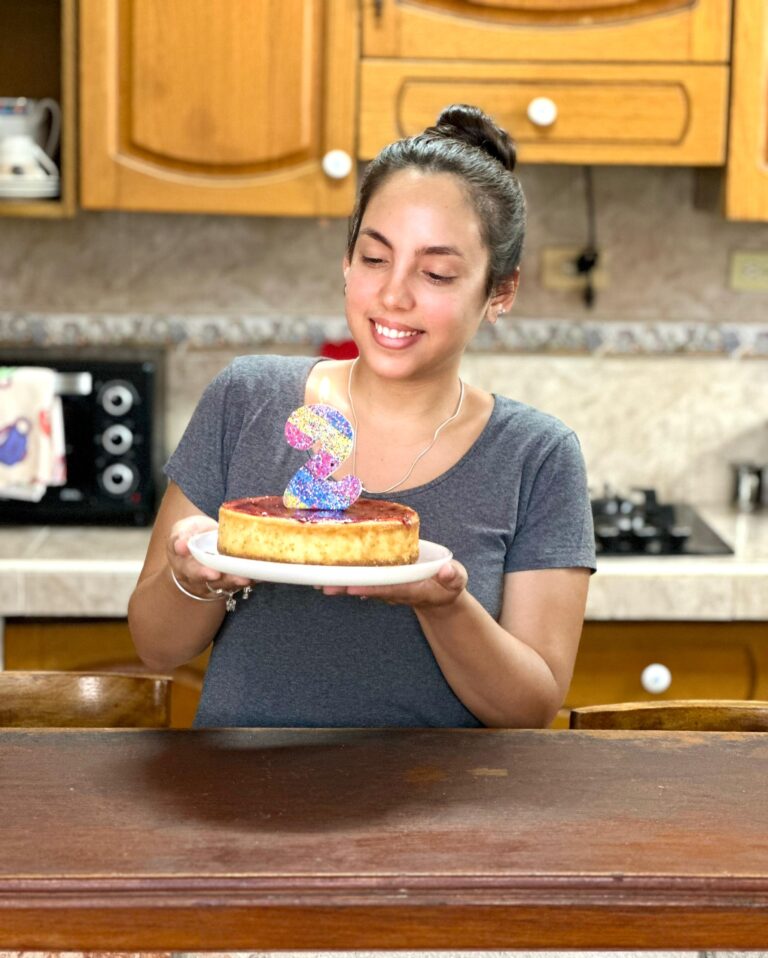
Are there any recipe books, cookbooks, or collaborations in the works?
I would really like to have a book, a physical recipe book where people can find my recipes and, like I did when I was a teenager, mark the ones they like the most. I always had little books where I saved and marked my favorite recipes, and I would love to bring the recipes I have on my blog to a printed format to share with people.
It’s one of those future dreams, a goal I would love to achieve.
Where do you see Cocina Menda in a few years?
I see myself teaching cooking classes and organizing live workshops. I would love to have my own space where I can teach classes, host culinary experiences, and share in person everything I love about Cuban cuisine and gastronomy in general.

